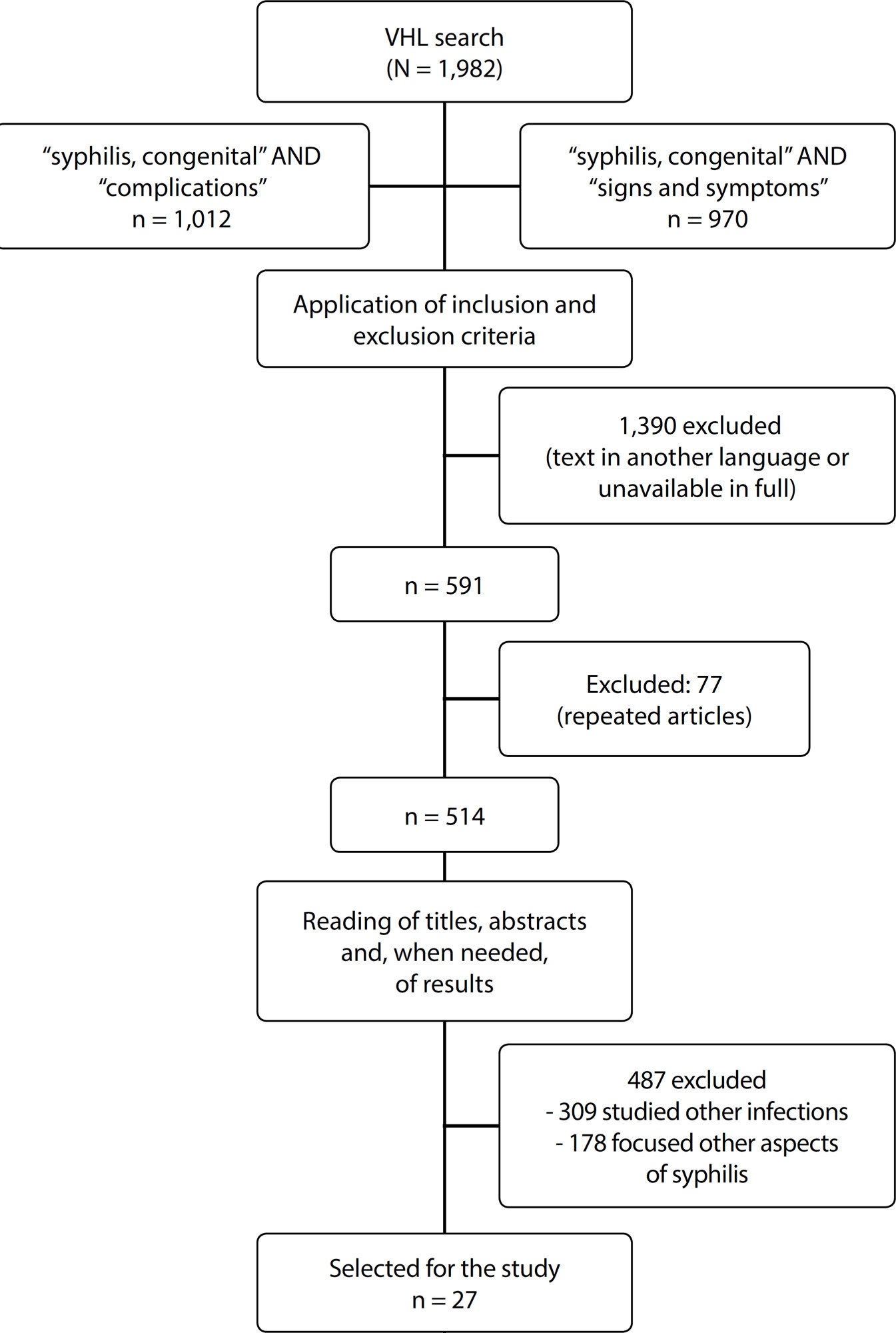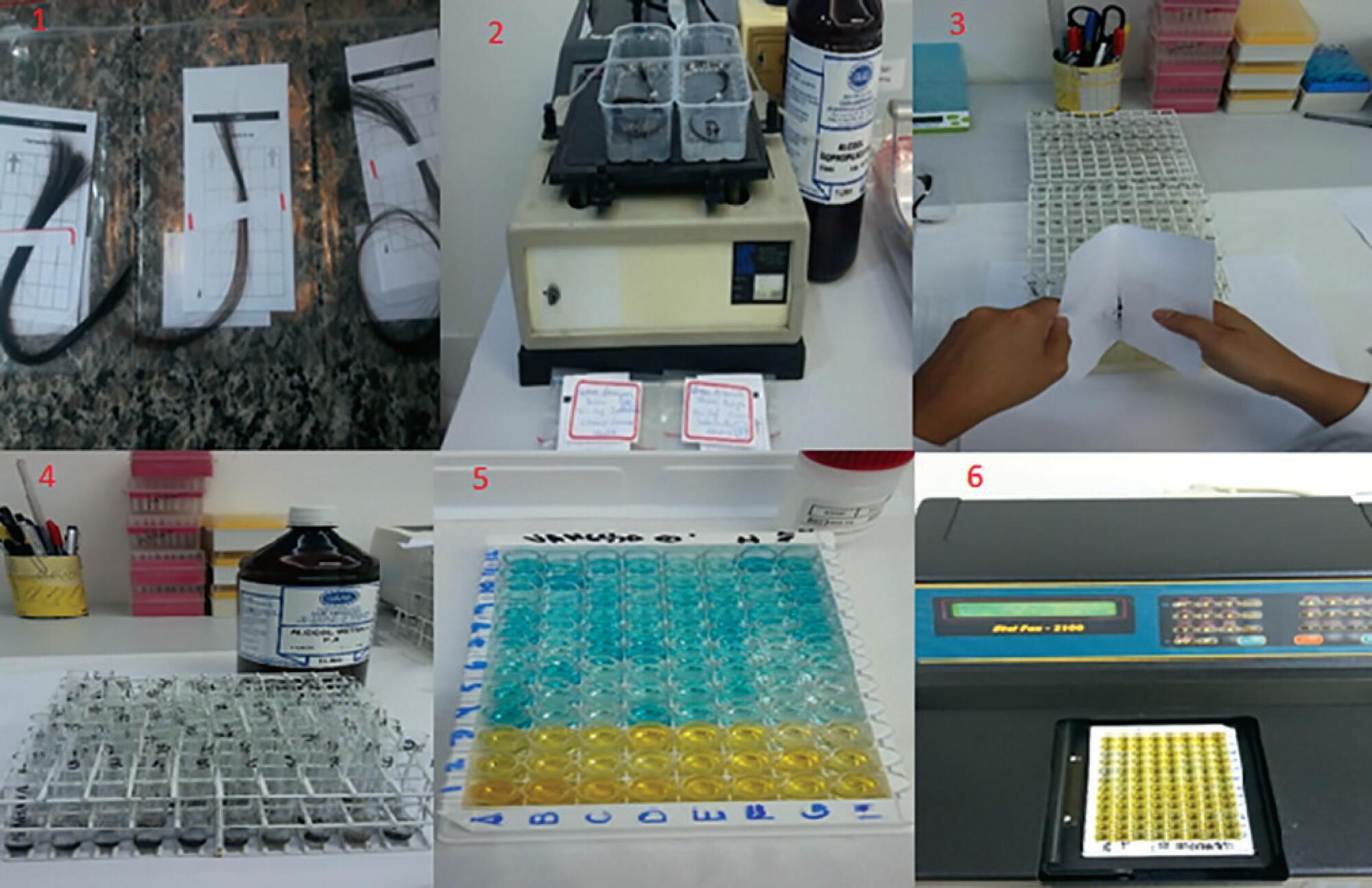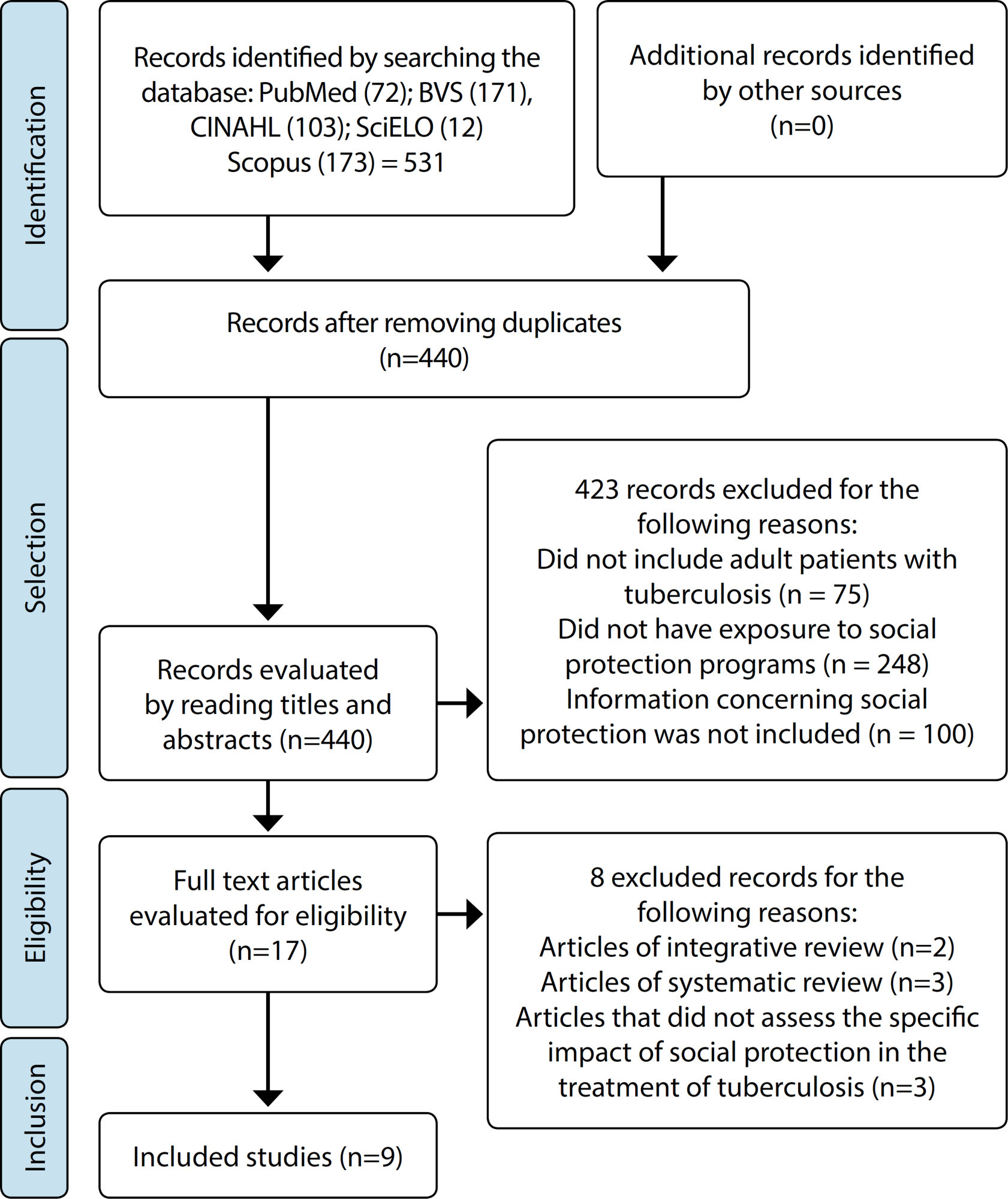-
RESEARCH
Children with neuropsychomotor development delay: music therapy promoting quality of life
Revista Brasileira de Enfermagem. 2015;68(5):797-802
01-01-2015
Abstract
RESEARCHChildren with neuropsychomotor development delay: music therapy promoting quality of life
Revista Brasileira de Enfermagem. 2015;68(5):797-802
01-01-2015DOI 10.1590/0034-7167.2015680505i
Views0See moreABSTRACT
Objective:
to identify the influence of music therapy on the behavior and quality of life of children with neuropsychomotor development delay (NPMDD).
Method:
experimental research, with applications of music therapy (in a group of children) held in the specialized association in Cruz das Almas – Bahia, composed of 17 children with NPMDD aged 5 to 12 years. The behavior of children involving emotional, physical, social and school aspects was observed.
Results:
there was an evolution in all aspects, being this improvement significant to Emotional Capacity and School Capacity domains, showing the beneficial effects of music therapy.
Conclusion:
music therapy becomes a treatment option for children with NPMDD, improving their quality of life.

-
RESEARCH
Spirituality, religion and personal beliefs of adolescents with cancer
Revista Brasileira de Enfermagem. 2015;68(5):791-796
01-01-2015
Abstract
RESEARCHSpirituality, religion and personal beliefs of adolescents with cancer
Revista Brasileira de Enfermagem. 2015;68(5):791-796
01-01-2015DOI 10.1590/0034-7167.2015680504i
Views0See moreABSTRACT
Objective:
to examine adolescents’ perception about spirituality, religion and personal beliefs in their lives due to cancer and a possible strategy for coping with the disease.
Method:
qualitative research, both descriptive and exploratory. The data were collected by means of a personal semi-structured interview, and the categories were analyzed by content analyzes.
Results:
nine adolescents who were undergoing cancer treatment at one of the two institutions located Uberaba, Brazil, participated in the study. Based on the analysis and interpretation of results, it was possible to systematize them according to four categories: spiritual history of the individual; faith and belief; importance of spirituality in their lives, and the community acting as a spiritual supporter. Most adolescents referred to spirituality as being an important tool for dealing with the disease, especially concerning religious rituals and community support.
Conclusion:
spirituality creates hope for adolescents, which helps them to cope with cancer-related diffi culties and contribute to the search for the meaning of life.
-
RESEARCH
Coping strategies of nursing students for dealing with university stress
Revista Brasileira de Enfermagem. 2015;68(5):783-790
01-01-2015
Abstract
RESEARCHCoping strategies of nursing students for dealing with university stress
Revista Brasileira de Enfermagem. 2015;68(5):783-790
01-01-2015DOI 10.1590/0034-7167.2015680503i
Views0See moreABSTRACT
Objective:
to identify the coping strategies used by nursing students in a university in southern Brazil, establishing the relationship between the sociodemographic and academic variables examined.
Method:
an exploratory, descriptive, quantitative study, carried out with 146 nursing students, through application of the Coping Strategies Inventory. For the data analysis, descriptive statistics, analysis of variance and regression analysis were used.
Results:
it was found that the coping strategy most used by nursing students is escape. A connection was also detected between the academic dissatisfaction variable and the use of negative coping strategies.
Conclusion:
it was noted that students satisfi ed with the course used positive coping strategies targeting the problem, whereas dissatisfi ed students used negative strategies focusing on the emotion.

-
RESEARCH
Unemployment and psychological distress in nurses
Revista Brasileira de Enfermagem. 2015;68(5):775-782
01-01-2015
Abstract
RESEARCHUnemployment and psychological distress in nurses
Revista Brasileira de Enfermagem. 2015;68(5):775-782
01-01-2015DOI 10.1590/0034-7167.2015680502i
Views0See moreABSTRACT
Objective:
to assess psychological distress in nurses searching for their first job, especially symptoms of depression, and identify the factors that caused mental suffering, and how these nurses cope with the situation.
Method:
this was a qualitative study carried out with unemployed nurses who had graduated less than two years before the time of the study, and were residents of the town of Assis in the Brazilian state of São Paulo. Data were gathered by means of semi-structured interviews, content analysis, and application of the Beck Depression Inventory psychometric scale.
Results:
of the 14 nurses that participated, three had scores on the psychometric scale indicative of depression. Participants reported psychological distress related to unemployment, poor university education, and surplus labor due to the large number of graduates and lack of jobs, as well as a culture of employment centered on professionals’ social networks. The unemployed nurses did not have effective ways of coping.
Conclusion:
unemployment promoted psychological distress among the new nurses, especially symptoms of depression, without effective means of coping.
-
EDITORIAL
Teste de triagem neonatal: expandir ou não expandir?
Revista Brasileira de Enfermagem. 2015;68(5):771-772
01-01-2015
Abstract
EDITORIALTeste de triagem neonatal: expandir ou não expandir?
Revista Brasileira de Enfermagem. 2015;68(5):771-772
01-01-2015DOI 10.1590/0034-7167.2015680501i
Views0“A principal restrição sobre o que podemos detectar no teste de triagem neonatal está rapidamente se tornando o que escolhemos detectar em vez daquilo que nos é limitado por razão de viabilidade técnica ou custo”().Os avanços tecnológicos estão conferindo ao mundo médico uma oportunidade de aumentar o número de patologias para as quais os recém-nascidos […]See more -
EDITORIAL
Newborn blood spot screening: to expand or not to expand?
Revista Brasileira de Enfermagem. 2015;68(5):771-772
01-01-2015
Abstract
EDITORIALNewborn blood spot screening: to expand or not to expand?
Revista Brasileira de Enfermagem. 2015;68(5):771-772
01-01-2015DOI 10.1590/0034-7167.2015680501i
Views0“The principal constraint on what we can detect in newborn screening is fast becoming what we choose to detect: rather than what is limited for us by technical feasibility or cost”().Technological advances are providing the medical world an opportunity to extend the number of conditions newborn babies are screened for. Tandem mass spectrometry (TMS, also […]See more -
REVIEW
International Classification for Nursing Practice – ICNP®: application to the Brazilian reality
Revista Brasileira de Enfermagem. 2015;68(4):730-731
01-01-2015
Abstract
REVIEWInternational Classification for Nursing Practice – ICNP®: application to the Brazilian reality
Revista Brasileira de Enfermagem. 2015;68(4):730-731
01-01-2015DOI 10.1590/0034-7167.2015680422i
Views0The author and organizer, Telma Ribeiro Garcia, added her theoretical and practical knowledge to those of a dozen other authors for the creation of the book “International Classification for Nursing Practice – ICNP®: application to the Brazilian reality”. She is a retired professor of the Department of Public Health Nursing and Psychiatry at the Federal […]See more -
REFLECTION
Linhas de pesquisa em enfermagem: destaques filosóficos e epistemológicos
Revista Brasileira de Enfermagem. 2015;68(4):723-729
01-01-2015
Abstract
REFLECTIONLinhas de pesquisa em enfermagem: destaques filosóficos e epistemológicos
Revista Brasileira de Enfermagem. 2015;68(4):723-729
01-01-2015DOI 10.1590/0034-7167.2015680421p
Views0See moreRESUMO
Objetivo:
elucidar destaques filosóficos e epistemológicos mediante considerações significativas, essenciais, em favor da causalidade de questões no interesse da Enfermagem.
Método:
abordagem fundamentada nas proposições teóricas de Johannes Hessen, com referência a outros autores expertos no tema.
Resultados:
esclarecimento de aspectos substantivos e implicações adjetivas não só no interesse da investigação, ressaltando os significados essenciais do assunto, condizente com as elaborações de dissertações de mestrado e teses de doutorado de Enfermagem.
Conclusão:
trata-se de uma contribuição valiosa para esclarecer melhor detalhes da construção do conhecimento na temática e problemática do assunto posto em causa, as linhas de pesquisa em enfermagem.

-
REVIEW
Complications, clinical manifestations of congenital syphilis, and aspects related to its prevention: an integrative review
Revista Brasileira de Enfermagem. 2021;74(4):e20190318
07-14-2021
Abstract
REVIEWComplications, clinical manifestations of congenital syphilis, and aspects related to its prevention: an integrative review
Revista Brasileira de Enfermagem. 2021;74(4):e20190318
07-14-2021DOI 10.1590/0034-7167-2019-0318
Views0See moreABSTRACT
Objectives:
to identify the scientific evidence about the clinical complications and manifestations of congenital syphilis and aspects related to its prevention.
Methods:
integrative review after a search in the databases LILACS and MEDLINE, carried out in March 2018, using the descriptors “syphilis, congenital”, “complications”, and “signs and symptoms”, leading to the selection of 27 researches.
Results:
the publications found were published from 1966 to 2017, and most of them were from Latin America and Africa. Negative outcomes, laboratory changes, and the clinical manifestations in congenital syphilis, whether early or delayed, were, respectively: low weight at birth, anemia, hepatosplenomegaly, and dental alterations. The lack of treatment of the pregnant women in the prenatal was the most common occasion in which the opportunity to prevent the complications of congenital syphilis was lost.
Conclusions:
the scientific evidences analyzed showed serious complications of congenital syphilis that could be avoided if early opportunities of diagnosing and treating the pregnant women are not lost during the prenatal.

-
ORIGINAL ARTICLE
Cultural adaptation of Infant Feeding Intentions Scale (IFI) for pregnant women in Brazil
Revista Brasileira de Enfermagem. 2020;73:e20190103
07-15-2020
Abstract
ORIGINAL ARTICLECultural adaptation of Infant Feeding Intentions Scale (IFI) for pregnant women in Brazil
Revista Brasileira de Enfermagem. 2020;73:e20190103
07-15-2020DOI 10.1590/0034-7167-2019-0103
Views0See moreABSTRACT
Objectives:
to translate and culturally adapt the Infant Feeding Intentions Scale for pregnant women in Brazil.
Methods:
methodological study that included stages of translation, synthesis, face and content validation, back translation and semantic assessment. In the face and content and semantic validation stages, we used the Content Validity Index for individual items and for the overall scale for clarity and representativeness.
Results:
nine (100.0%) experts participated in face and content validation, and the average index obtained was 85.0% for representativeness. In the semantic assessment, performed with 31 (100.0%) pregnant women, the tool was considered clear, obtaining an average index of 91.0%.
Conclusions:
the Brazilian version of the scale was considered representative and clear. After assessing psychometric properties, the scale is expected to be valid and reliable to assess maternal intention to breastfeed exclusively until the infant’s six months of life in different Brazilian settings.
-
ORIGINAL ARTICLE
Development, validation and application of clinical simulation scenarios for assessment of stomatherapy specialists
Revista Brasileira de Enfermagem. 2021;74(1):e20200360
03-24-2021
Abstract
ORIGINAL ARTICLEDevelopment, validation and application of clinical simulation scenarios for assessment of stomatherapy specialists
Revista Brasileira de Enfermagem. 2021;74(1):e20200360
03-24-2021DOI 10.1590/0034-7167-2020-0360
Views0ABSTRACT
Objectives:
to build and validate three clinical simulation scenarios and report the application with candidates for the specialist’s degree in stomatherapy.
Methods:
methodological study, building three scenarios and evaluation checklists; content validation with judges, using content validity index and Modified Kappa Coefficient; pre-test and application.
Results:
scenarios built based on nursing care for: 1. insufficiency and venous ulcer; 2. demarcation of intestinal stomia; and 3. Clean intermittent catheterization. In the content validation of the 24 items appreciated, 83%, 80%, and 92% were validated without change. In the pre-test, the objectives and checklists were adjusted. In the application, to standardize the evaluation, actors and evaluators were trained previously, and each candidate passed the three stations.
Conclusions:
scenarios built and with validated content, based on evidence and covering the three areas of stomatherapy. The pre-test allowed for adjustments in the scenarios, and the candidates achieved the expected objectives.
Keywords:Educational AssessmentNursing EducationPatient SimulationSimulation TrainingValidation StudiesSee more -
ORIGINAL ARTICLE
Management of home care by family caregivers to elderly after hospital discharge
Revista Brasileira de Enfermagem. 2020;73:e20200474
12-07-2020
Abstract
ORIGINAL ARTICLEManagement of home care by family caregivers to elderly after hospital discharge
Revista Brasileira de Enfermagem. 2020;73:e20200474
12-07-2020DOI 10.1590/0034-7167-2020-0474
Views0See moreABSTRACT
Objective:
To understand the management of home care by family caregivers of dependent elderly people after hospital discharge.
Methods:
Qualitative research guided by hermeneutics-dialectic, anchored in the theory of communicative action. Data collection took place using a semi-structured interview with 11 participants.
Results:
Two categories were constructed: Management of the many types of care by the caregiver and the relationship between family caregiver and health care network. Care and management actions carried out routinely cause major changes in the family caregiver’s life. He/she does not recognize planning, home care periodicity or support in required procedures.
Final Considerations:
The management of home care for dependent elderly people after hospital discharge is complex, involving physical and emotional overloads, as well as difficulties in getting support from health services. The planning shared between the health team and the family since the discharge is required, and the better visibility of the role of primary care when the patient is assisted by a home care service.
-
Sexuality is associated with the quality of life of the elderly!
Revista Brasileira de Enfermagem. 2021;74:e20201272
07-09-2021
Abstract
Sexuality is associated with the quality of life of the elderly!
Revista Brasileira de Enfermagem. 2021;74:e20201272
07-09-2021DOI 10.1590/0034-7167-2020-1272
Views0See moreABSTRACT
Objective:
to analyze the association between sexuality and quality of life of Brazilian elderly residents in the community.
Methods:
a cross-sectional study conducted with 477 Brazilian elderly. The data were collected between August and October 2020. We used the EVASI and WHOQOL-OLD (World Health Organization Quality of Life). Data analysis was performed with Mann-Whitney, Spearman and Kruskal-Wallis correlation tests, with Bonferroni post-hoc application when necessary, considering a 95% confidence interval.
Results:
there was a statistical association between all dimensions of sexuality and the general quality of life of the elderly (p<0.05).
Conclusion:
the stimulation of sexuality can be configured as an innovative and holistic strategy focused on the promotion of health and active aging, since this study found the association between sexuality and the general quality of life of elderly people.
-
ORIGINAL ARTICLE
Stress and cortisol levels among members of the nursing team
Revista Brasileira de Enfermagem. 2020;73:e20180953
06-01-2020
Abstract
ORIGINAL ARTICLEStress and cortisol levels among members of the nursing team
Revista Brasileira de Enfermagem. 2020;73:e20180953
06-01-2020DOI 10.1590/0034-7167-2018-0953
Views0See moreABSTRACT
Objective:
To analyze the characteristics of hospital nursing professionals with the presence of stress, and to associate this with capillary cortisol.
Method:
A cross-sectional, exploratory and correlational study, conducted in a hospital in São Paulo, Brazil. A total of 164 nursing professionals participated; the Perceived Stress Scale was administered, and hair samples were obtained for laboratory analysis. Data were entered into a Microsoft Excel spreadsheet (2010), and then into Microsoft Office and the R software, version 3.2.2.
Results:
High levels of capillary cortisol in 47% of participants suggest the presence of stress, but no statistical significance between cortisol and stress levels were found.
Conclusions:
Stress and capillary cortisol levels were indicative of stress among nursing professionals; however, no association between them was found, although the values found were above those recommended.

-
ORIGINAL ARTICLE
Functional health literacy in hypertensive elders at primary health care
Revista Brasileira de Enfermagem. 2019;72:266-273
12-05-2019
Abstract
ORIGINAL ARTICLEFunctional health literacy in hypertensive elders at primary health care
Revista Brasileira de Enfermagem. 2019;72:266-273
12-05-2019DOI 10.1590/0034-7167-2018-0897
Views0See moreABSTRACT
Objective:
to assess the relationship between inadequate functional health literacy and inadequate blood pressure control in older people with hypertension in Primary Health Care.
Method:
a cross-sectional study with sample calculated at 392. SAHLPA-18 tool was used for functional health literacy; blood pressure was measured; sociodemographic and clinical data were collected. Hierarchical logistic regression was used.
Results:
(high) inadequate blood pressure and (low) functional inadequate health literacy were present in 41.6% and 54.6% of the people, respectively. Factors associated with inadequate blood pressure were: inadequate functional health literacy, black-brown skin color, overweight-obesity, hypertension diagnosis time, non-adherence to exercise/diet, drug treatment. Schooling had no association with inadequate blood pressure
Conclusion:
hypertensive elderly people with inadequate health literacy were more likely to have inadequate blood pressure. Thus, health professionals need to value functional health literacy as a possible component to control blood pressure.
Search
Search in:
Nuvem de Tags
Aged (144) Atenção Primária à Saúde (239) COVID-19 (104) Cuidados de Enfermagem (269) Educação em Enfermagem (151) Educação em Saúde (139) Enfermagem (930) Estudos de Validação (131) Health Education (144) Idoso (208) Mental Health (149) Nursing (987) Nursing Care (306) Patient Safety (151) Primary Health Care (284) Qualidade de Vida (104) Quality of Life (106) Saúde Mental (145) Segurança do Paciente (150) Validation Studies (108)




